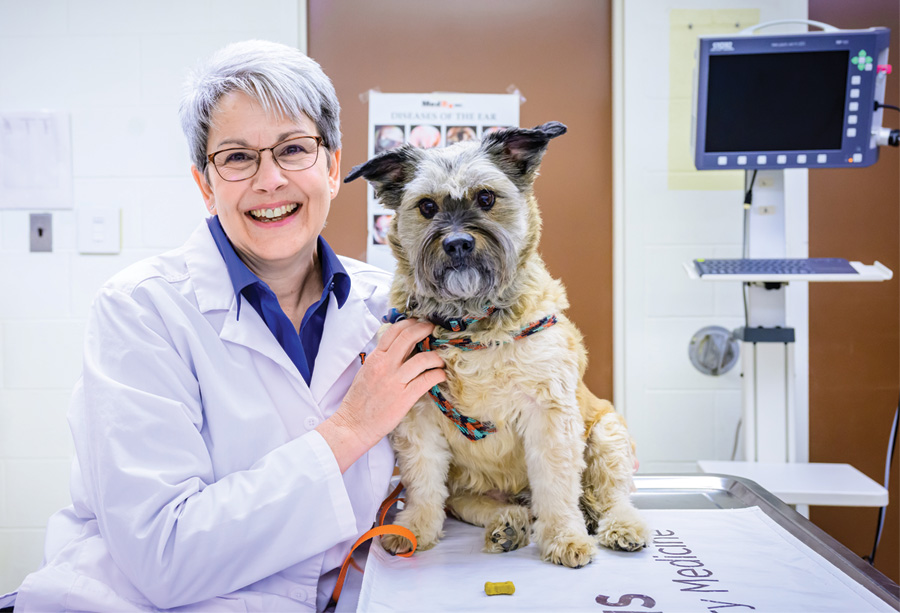The small animal internal medicine service is pleased to announce a new, low-dose I-131 therapy for the treatment of feline hyperthyroidism. This protocol has been shown to reduce the chances of iatrogenic hypothyroidism and azotemia, without significantly affecting treatment efficacy, making it safer for our patients (1). Concurrent with this, changes to Illinois regulations now require cats to reach a lower level of radioactivity prior to release, which reduces the risk of radiation exposure for the owners.
With the new protocol, we expect release times for cats to be similar to before, about 5 to 7 days after treatment. However, it is possible cats may need to stay longer to reach safe radioactivity levels. For this reason, we are increasing our estimate to $1,700 – $2,300, with the higher end covering several additional days of radiation boarding. When you discuss referral with your clients, please make sure they understand that their cat may need to stay for a longer period.
All other aspects of our radioiodine program remain the same. Patients will be evaluated for suitability at their appointment and treatment administered the next day. Cats must be off antithyroid medications (e.g., methimazole) for a minimum of three days prior to their appointment.
While the patient is in radiation boarding, we are unable to administer medications other than those that can be mixed with food (no pilling or injections). After release, contact with the cat must be minimized to prevent radiation exposure to the owners.
If you have questions or would like to discuss a patient’s suitability for radioiodine therapy, please call for a small animal internal medicine consult at 217-333-5311.
- Lucy JM, et al. J Vet Intern Med. 2017;31:326-34



